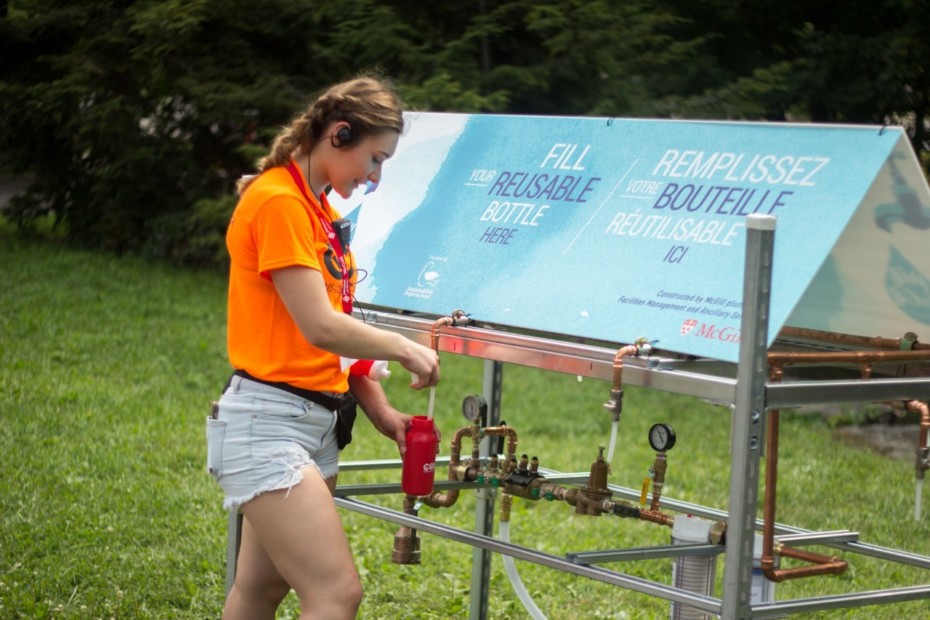
When the Sustainability Projects Fund (SPF) was established in 2009, it was an experiment.
The idea was simple: Promote a culture of sustainability across McGill by providing seed funding for grassroots sustainability projects that address everything from energy savings to social justice. (Each student would pay 50 cents per credit, which the administration would match dollar for dollar.) Members of the McGill community, including students, staff and faculty, would be welcome to apply for funding for their projects big and small.
Ten years, and $7 million in funding, later, it’s safe to say the experiment has been a huge success.
On October 10, the SPF will celebrate its 10th anniversary as the largest fund of its kind in Canada.
In the ten days leading up to October 10, the McGill Reporter is highlighting 10 of the more than 200 projects that have been supported by the SPF.
Today’s project: Discover Sustainable McGill
Sustainability is a mindset, and like any other ethos, it can take time to adopt as a reflex.
Case in point: Campus Life & Engagement events, hosts some of the largest on campus. Given their size and complexity, integrating environmental sustainability into the way they are run is not always obvious. Managing single-use plastics, the lack of waste sorting and an inadequate water-refilling infrastructure must be addressed, requiring time and fastidious focus.
To address these logistical issues, CL&E received financing from the SPF for its Discover Sustainable McGill project to hire an intern, whose job it is to help find lasting solutions to these problems and help implement them.
The grad student’s mandate has various facets, but its main component is the elimination of single-use plastic bottles at orientation events and offering alternatives like portable water carts, coolers and other back-ups in sufficient quantity to refill students’ multiple-use bottles.
Other goals include waste management and composting at orientation; compiling educational material to train event leaders; recruiting volunteers to sort waste and handle logistics at events, which can number 7,000 attendees; working with the Off-Campus & Commuter Student Support program to ensure sustainability and accessibility of programming; and otherwise helping to implement the Unit Level Action Plan, which defines CL&E’s sustainability goals over two years.
The program includes workshops for commuter students – those who do not live in residence – on such topics as composting and sustainable living.
The SPF funds in part financed the purchase of refillable bottles and the refilling infrastructure.
Setting the tone
The CL&E events are often a student’s first contact with McGill life, and setting the tone at the outset is important, said Gilbert Lin, the project’s lead.
Before the SPF seed funding, “our team was unable to address these issues as we do not have the capacity nor resources to do so. We would like incoming students to arrive at McGill and be able to clearly see our sustainability priorities reflected in our actions.”
He added that in cooperation with McGill’s Office of Sustainability, CL&E was successful in reducing consumption during orientation week by 5,000 bottles. But it still had to buy 10,000 bottles, which is not a sustainable proposition.
Lin said the student intern is trying to find a sponsor to help shoulder the cost of refillable bottles.
Lin said that the Discover Sustainable McGill project hopes to build on the Sustainable Orientation project in 2017 that produced results in terms of apparel, training, and food at student-run froshes.
#spf10
